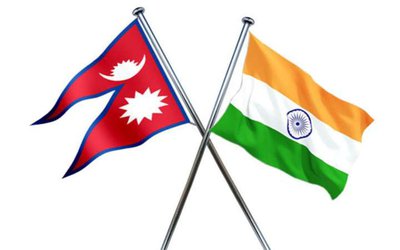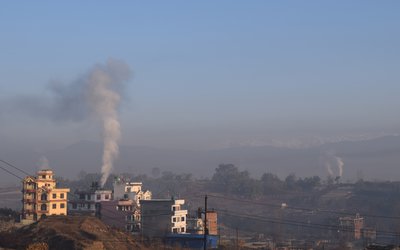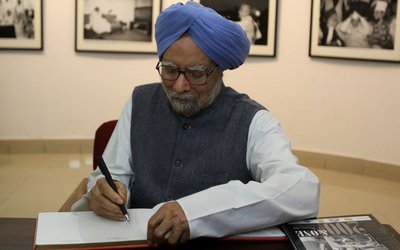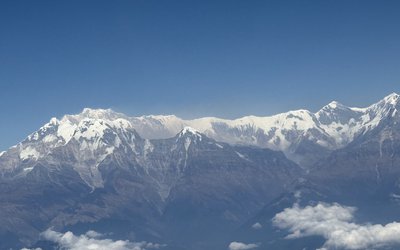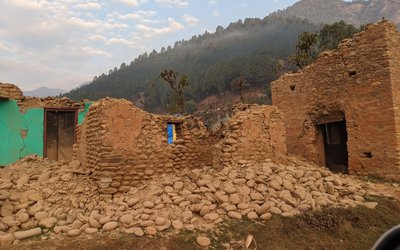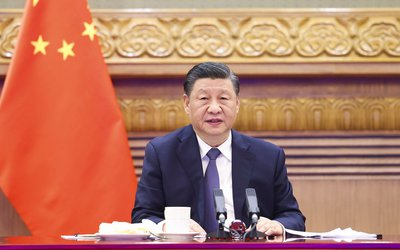For Nepal, pursuing a riskier foreign policy approach in relation to India and China could be a desirable alternative. Although there is a disparity between Nepal and its neighbouring nations in terms of affluence and population, Nepal holds a key geostrategic advantage by existing between the two. Historically, Nepal has played a little brother to India and we are heavily reliant in our southern neighbours for valuable commodities such as oil and gas. The detrimental effect of this clearly displayed in the numerous trade embargos and blockades we have endured in recent times. A step must be taken away from this rigid foreign policy and risks must be taken if Nepal wants to pursue a path to progress. The alternative proposed here is the strategic use of hedging, a concept implemented successfully by those in a similar situation to Nepal. Nepal’s geostrategic advantage can be used to negotiate concessions out of India by increasing diplomacy with China.
Examples of hedging provide a better understanding of the concept. Several South East Asian nations such as Vietnam, Philippines and Malaysia have used their geostrategic advantage to extort concessions from the USA and China. These three nations are all reliant on China for trade however they are also involved in territorial disputes with the country. These disputes are serious and have led to conflict in the past and China being the superior military power can use muscular diplomacy to pursue its interests. However, Vietnam, Philippines and Malaysia have used the interest of another regional superpower to combat China: The USA. The USA has security interests in the region and to consolidate this have agreed to limited military alliances with nations in the area. This is beneficial for the nations of Vietnam, Philippines and Malaysia as US security alliance means that they have to devote less funds to their security and can allocate it to national development. Furthermore, the alliance with the US acts as a deterrent and has forced China to pursue stronger relations with these countries which is evident through the increase in trade and diplomatic cooperation. By pursuing a proactive and risky policy, the nations of Vietnam, Philippines and Malaysia have managed to use their geostrategic advantage to pay dividends.
North Korea’s strategic use of hedging is even more transferrable to Nepal. Similar to the Nepal- Indian relations, North Korea has been the historical little brother to China with the latter nation reigning superior in almost every aspect. North Korea is also largely dependent on China for imports of oil and gas and is the main export destination for the Koreans. This reliance has been exploited by China as they have previously placed embargos when the Koreans did not behave according to the interests of the Chinese. This has resulted in North Korea implementing the hedging strategy for the benefit of their country. Just like Nepal, the DPRK also has a geographical advantage as it acts as buffer between South Korea and China. South Korea is home to US bases which, for security reasons, the Chinese do not want right at their doorstep. The Kim regime has acted pragmatically by pursuing a warmer relationship with the USA. This has several positive consequences for the Koreans. Firstly, they have taken a step away from their reliance on China by pursuing warmer diplomatic relations with the USA. This has already led to talks of easing sanctions against the North Koreans. Secondly, by increasing talks with the USA, the DPRK has put pressure on Beijing as they do not want a US friendly North Korea on their border. This has led to China making more concessions for North Korea and can be seen with Xi Jiping visiting Pyongyang for the first time and also through the increase in trade between North Korea and China. Pyongyang used the insecurity of China in relation to the USA in order to gain leverage against a country that are far superior to themselves and this strategy and success can be emulated by Nepal.
Like the nations mentioned previously, Nepal also has a geostrategic advantage. We are blessed to be the buffer state between India and China as these nations have a history of hostility. Border conflicts have taken place between the two in the 20th century and India currently harbours the Dalai Lama who is seen by China as an enemy. The conflicts between the two have not escalated due to the fact that conventional warfare is almost impossible due to the impenetrable Himalayas that separate them. However, if Nepal were to pursue closer relations with China this would put enormous pressure on Delhi. India is already involved in serious hostilities with Pakistan to their west and if Nepal forms closer links with the Chinese, they will have another possible threat in the North. To prevent this India is likely to offer concessions to Nepal to prevent the Chinese from garnering substantial influence and therefore providing more benefits to Nepal. However, it has to be limited to a certain extent as a large amount of Chinese involvement can be dangerous.

Raunak Mainali
Raunak Mainali studied Politics and international relations at the University of Kent and is currently undertaking a masters degree in Defence, Development and Diplomacy at Durham University
- Why Nepal Should Develop Long-Distance Runners?
- Mar 19, 2018
